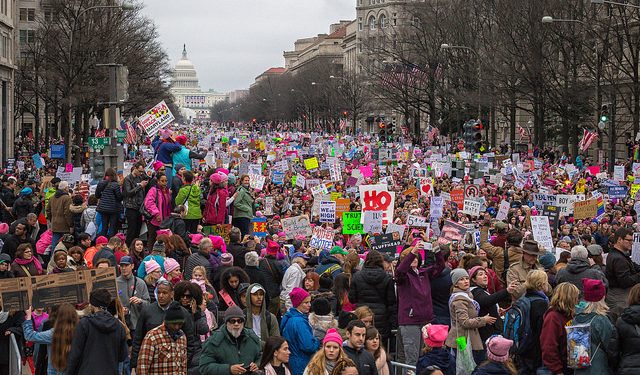An estimated 470,000 people attended The Women’s March on Washington, D.C. this past Saturday. Sister marches, including one in New York City, gathered around 4 million people worldwide, including many Fordham students. Although these popular protests were mostly viewed as a powerful call for equality and unity, some criticised the protest methods used and the message as a whole for not including the experiences of non-white, non-cisgender women.
USA Today defines intersectional feminism as “the understanding of how women’s overlapping identities — including race, class, ethnicity, religion and sexual orientation — impact the way they experience oppression and discrimination.” In other words, a black woman has a much different experience than a white woman, and a transgender woman will have a very different experience than a cisgendered woman. It is essentially the idea that feminism should not just include rights that involve strictly being a woman, but must include issues that affect other intersecting identities.
As early as the inception of the march, some people expressed concern on its Facebook events pages that it would emphasize the issues held important by those in positions of privilege — namely, upper-class white women. For generations, the feminist movement was exclusive to only white, straight and cisgendered women. And while feminism as a whole has been receiving a lot more popularity and media coverage, it is mainly white feminists who are in the spotlight. Though the intention of the women’s march was to unite women and protest the actions of President Trump and his administration, the march also highlighted the importance of intersectional feminism and why we as a nation must pay more attention to every kind of feminist.
This march was the most diverse of feminist history for a reason.
Many people of color who did decide to attend the march took the opportunity to publicize the lack of intersectionality and address the importance of race within the fight for women’s rights. A photo of black feminist Angela Peoples holding a sign that read, “Don’t forget: White women voted for Trump” standing in front of three white women taking selfies went viral over the weekend, and served as a reminder of the racial tensions surrounding our current political climate, feminists movements and the march itself.
This acknowledgement of the lack of intersectional feminism at the marches across the country this past Saturday is not in any way trying to undermine the march. It was in turn a great opportunity to bring this issue with mainstream feminism to light. For the past months, intersectional feminism has been discussed over social media in an unprecedented way. It serves, as UCLA’s Grace Hong told NPR, “so that you can have the tough conversations.” The marches this past weekend have for sure opened that door, a door that should remain open, both for those who marched and those who did not.





